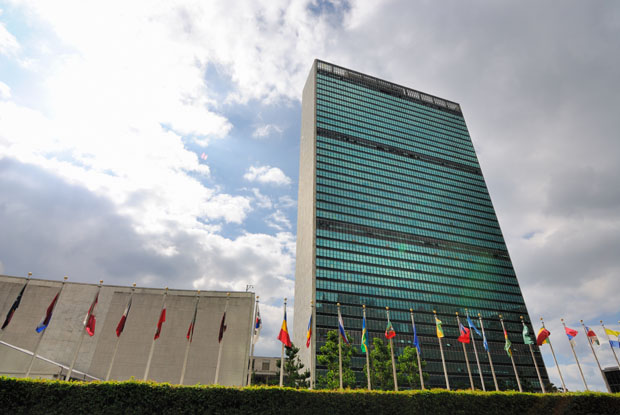“The transition to sustainable development must be based on a commitment to eradicate poverty. This is an indispensable requirement; a matter of human rights”, UN General Secretary Ban Ki Moon declared yesterday at a special event discussing the future of global development.
The day-long session took place at the 68th General Assembly titled ‘Beyond the Millennium Development Goals: The Post-2015 Sustainable Development Agenda’. Its aim is to figure out what could be the world’s next unified development strategy when the UN’s eight Millennium Development Goals (MDG) ‘run out’ in 2015.
While it may seem like your average meeting of the diplomatic elite, this week’s events marks one of the most significant events in global development since the Millennium Declaration in 2000. The conclusions will guide a large-scale poverty eradication strategy that will have a very real impact on the lives of millions around the world. It is vital to get it right, and in order to do that, it has to promote and protect freedom of expression.
The major criticisms levelled at the MDGs were the opaque manner in which they were set up, and the minimal focus civil liberties. The right to freedom of expression was all but ignored completely.
So when the time came around to consider the road ahead for global development, many, including the Beyond 2015 project, argued that human rights had to play a fundamental part. “Development will not deliver for the poorest and most marginalised people in the world without a strong focus on human rights,” Human Rights Watch recently stated.
A vital right in this respect is the access and ability to express yourself freely and without fear. As Index has argued before, freedom of expression underpins most other rights and allows them to flourish. The ability for people on the ground to express their opinions, needs and wants, criticise and hold their leaders to account and access a free and fair media, play vital parts in the healthy development of a society. It is the marginalised people this development strategy would seek to help that face the most acute barriers to freedom of expression. If people can’t express what is hindering their development and if no-one is listening, how can their situation truly improve? This is a vicious circle that can only be broken by a strong commitment to universal freedom of expression.
The positive thing is that the powers that be appear to agree with this. Ban Ki Moon’s recent report “A life of dignity for all”, presented at this General Assembly, argues that “We know that upholding human rights and freeing people from fear and want are inseparable; it is imperative that we do more to act on this basic truth.”
The High Level Panel on the Post-2015 Development Agenda, tasked with scoping out the options ahead of this General Assembly, presented their findings in a report in May. They recommended it should include guarantees for freedom of speech, association, peaceful protest, and access to independent media and information. They also argued for increased public participation in political processes and civic engagement, as well as guarantees regarding peoples’ right to information and access to government data.
As opposed to the MDG process, this time around complex, important decisions about world development were not made behind closed door. There was a nine-month consultation process that included input from indigenous peoples, migrants, women’s groups, in addition to thousands of civil society groups and businesses from around the world. Through The World We Want project, a million people from across the world gave their thoughts on development in an online survey.
But the work is far from over. The General Assembly will set the stage for the future of global development, but not in stone. The MDGs avoided politically difficult topics like freedom of expression to ensure widespread support – even from countries with poor record on civil liberties. Unwavering commitment to human rights is needed over the next two years to avoid a watered down agenda.
The MDGs have laid some important foundations. The fact that we’re even discussing how to continue the project post-2015, is to its big credit. For the next step of a global development push, however, human rights including freedom of expression, have to be at the core. People have to be given a voice in their own development process.





